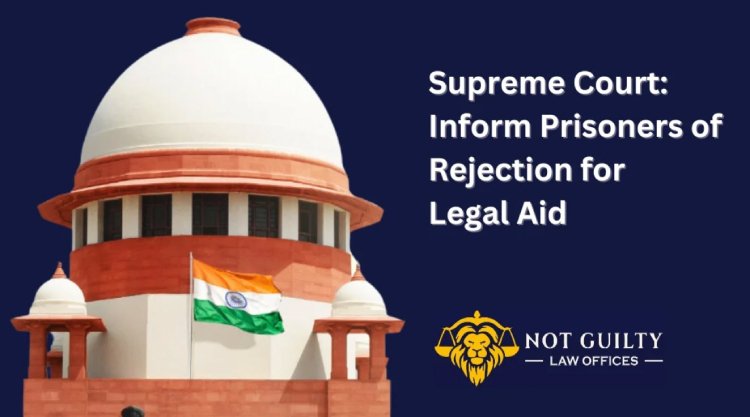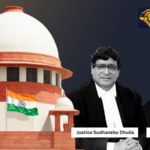Supreme Court: Prisoners Must Be Promptly Informed of Remission Rejections to Facilitate Legal Aid
On September 10, the Supreme Court took up a suo moto plea aimed at creating a unified strategy for granting bail to prisoners across India. Recognizing disparities in how different States handle bail and remission policies, the Court emphasized the need for clear, consistent guidelines. It directed several States that have not yet complied with previous orders to submit the required reports and highlighted the importance of promptly notifying prisoners when their remission applications are rejected.
The Court reiterated its intention to establish guidelines for the premature release of prisoners under Section 432 of the Code of Criminal Procedure, and the corresponding Section 474 of the Bharatiya Nagarik Suraksha Sanhita 2023, addressing the lack of uniformity in current State policies.
The case is being heard by a bench comprising Justices Abhay S. Oka and Augustine George Masih. It was initiated by the Supreme Court itself after noting significant inconsistencies in remission policies across various States. The Court was informed that more than half of the prisoners in numerous jails are undertrial and remain imprisoned despite having served the maximum punishment prescribed for their offenses. Many of these prisoners are eligible for bail under Section 436A of the CrPC, which allows for release after serving half of the maximum sentence.
The Court had previously issued orders to avoid delays in the release of prisoners who have been granted bail and stressed that bail conditions imposed by lower courts should be reasonable and not unduly restrictive.
Compliance Updates from States
On May 3, the Supreme Court directed the States of Jharkhand, Bihar, Madhya Pradesh, Sikkim, Maharashtra, Uttar Pradesh, and Telangana to provide data on premature releases to the amicus curiae, Senior Advocate Liz Mathew. According to the information presented, Uttar Pradesh was reported to have the worst compliance record.
Advocate Mathew was tasked with reviewing the data received from the States and submitting further observations. During the September 10 hearing, Mathew informed the Court that Haryana and Karnataka had mostly complied with the Court’s orders from July 7 and subsequent directives.
In Karnataka, 16 cases still require approval from the Ministry of Home Affairs (MHA), while Haryana has two such cases pending. The Court instructed the States to send reminders to the MHA and directed the Ministry to consider these proposals and make decisions within two months.
Manipur
The situation in Manipur was also discussed. Mathew informed the Court that some life convicts have been languishing in prison for 25 years and suffer from mental health issues. The State’s counsel informed the Court that a Medical Board is being constituted to assess these prisoners’ conditions.
Mathew reported six eligible cases for remission, one involving a prisoner convicted in a court-martial. The Court directed the State-Level Review Committee to obtain the necessary information from the MHA within one month. For the other five prisoners, who are of unsound mind and lack family support, the Court ordered Manipur to form a Medical Board comprising psychiatrists, psychologists, and other experts. This board will evaluate the prisoners’ mental health and determine whether they should be transferred to a medical facility. The findings must be submitted to amicus Mathew within a month.
Tamil Nadu
Tamil Nadu’s compliance was found to be insufficient. Out of 264 eligible cases for remission, only 84 have been decided, with 63 still pending. The Court noted the State’s failure to fully comply with its orders and instructed it to take immediate action.
Arunachal Pradesh
In Arunachal Pradesh, a single prisoner was found eligible for remission. However, the State-Level Advisory Committee did not recommend his release, citing that he poses a threat to society. The Court questioned whether this decision was communicated to the prisoner. The State’s counsel stated that instructions would be sought. The Court emphasized that the rejection must be conveyed to the prisoner so that the State Legal Services Authority can offer legal aid if needed.
Assam
Assam reported no progress in granting premature releases. Despite 43 cases being recommended, no relief has been provided. The Court noted the State’s non-compliance and pointed out that 83 cases are pending due to missing documents. It suggested that if the State policy requires an excessive number of documents, it should be rationalized. The State was asked to provide an update within a month.
West Bengal
For West Bengal, 793 life convicts are eligible for remission, but delays were reported at every stage of the process. The Court noted that only 44 cases have been resolved and that the recommendations by the State-level review board are being sent back to the judicial department. The Court ordered the appointment of a senior officer as a nodal officer to coordinate with all State authorities and ensure timely compliance. A report is due within a month.
General Directions for All States and Union Territories
The Supreme Court directed all States and Union Territories to immediately inform prisoners if their remission applications are denied. This will allow the National Legal Services Authority (NALSA) to provide legal aid where necessary. The Court underscored the importance of making prisoners aware of their right to challenge remission rejections.
The next compliance review is scheduled for October 22, covering Andhra Pradesh, Gujarat, Odisha, Chhattisgarh, and Himachal Pradesh. The Court will also address the issue of informing prisoners about remission rejections and the conditions to be included under Sections 432 and 473. The States of Madhya Pradesh, Maharashtra, Uttar Pradesh, and Delhi are also expected to submit compliance reports.
The Court took note of Delhi’s official position that no cases would be processed as the Chief Minister is currently in jail. It stated that this issue must be resolved and granted a three-week extension for compliance.
E-Prison Module Issue
The Court will address the E-prison module issue on September 25.
Case Reference: IN RE POLICY STRATEGY FOR GRANT OF BAIL SMW(Crl) No. 4/2021.



